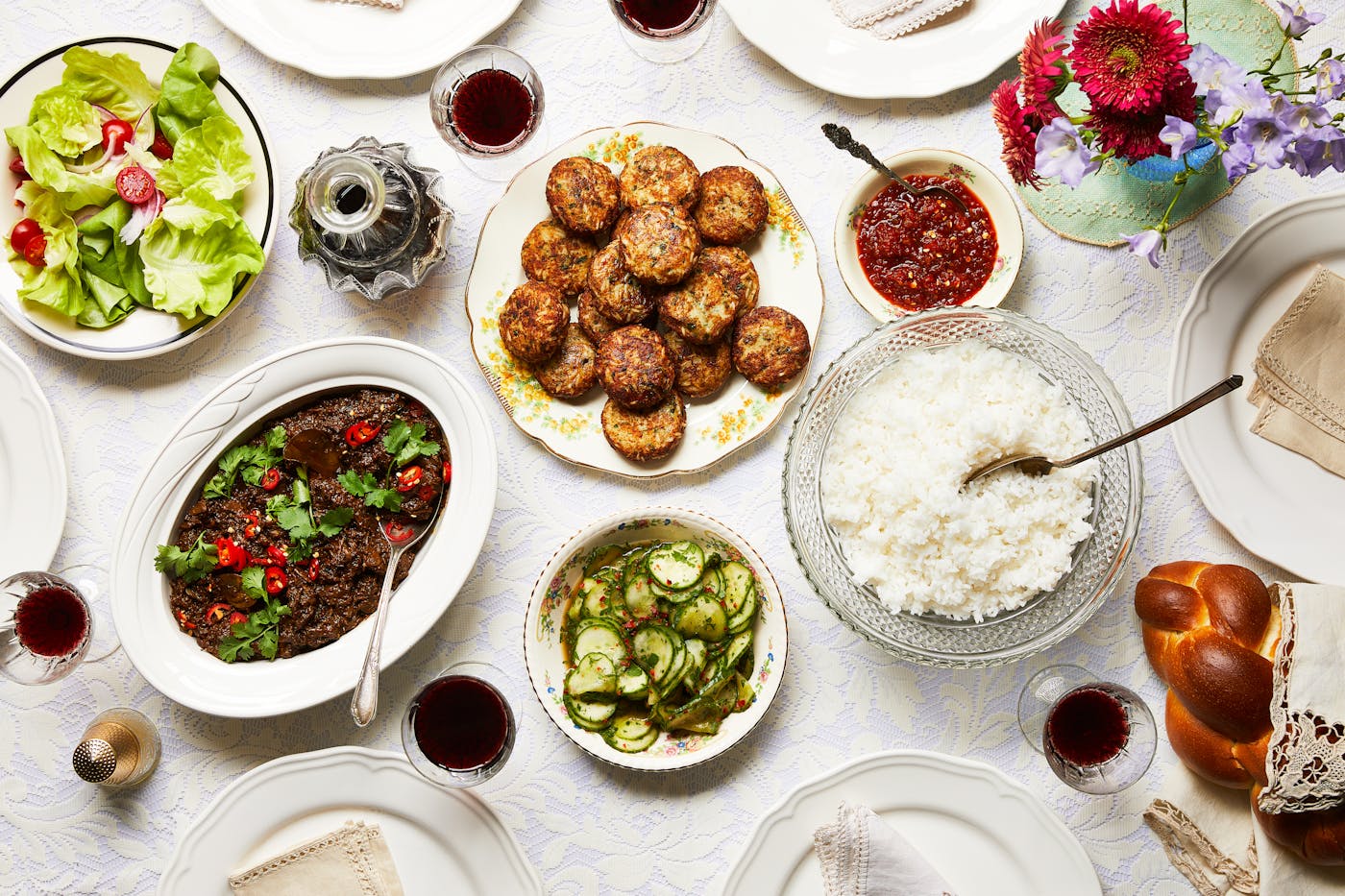Shared by Rose Benjamin


It was Rose Benjamin’s dad Joseph who nudged her to write a cookbook with her family and community’s recipes — ones like her mother Ida’s Iraqi spiced fish patties called arouk and her nana’s zalata or quick cucumber pickles along with beef rendang with lemongrass and Singaporean chicken rice. “It’s something that I can leave behind — a legacy — in honor of my family,” Rose says.
Her family comes from the close-knit 2,500-person Jewish community of Singapore, which has roots that stretch back to the 1800s. In 1841, there were 22 Jews trading locally, according to The Jews of Singapore Museum. On both sides of her family, Rose is third generation Singaporean. Her mother’s roots are Dutch and Iraqi while her father’s family is part of a community of Jews who came from India and before that Iraq, sometimes known as Baghdadi Jews.
Despite making up a small percentage of Singapore’s population, the Jewish community has made its mark. David Marshall, who served as Singapore’s first chief minister in the mid-1950s, was Jewish, and Stars of David are visible on buildings on the Middle Road, where Jewish businesses once stood. The community has largely lived in harmony with their neighbors, explains Rose, but during World War II, when Japan occupied Singapore, Jews including her grandfather Judah were interned in camps, while her grandmother and their children were fled to Bombay (present-day Mumbai). On the other side of the family, her grandmother, who was living in Jakarta, Indonesia at the time, was interned with her children while her husband was sent to Thailand and passed away. The family later returned to Singapore and after World War II, the Jewish population on the island nation declined, but her family stayed, running optical and textile businesses.
In the late 1960s, when Rose was a child, it “Was a close knit community — everyone knew everybody,” she says. There were two synagogues, but no Jewish day schools. Instead, she attended Sunday school and Shabbat was celebrated at her grandparents’ home where they ate Iraqi and Indian dishes like quick pickles she can still remember her grandmother preparing, stuffed chicken with rice called hashua and crispy potato patties called aloo chop. And for Saturday lunch, her aunt would make hamin.
Along with Baghdadi recipes, dishes from Singapore and Southeast Asia like chicken rice, laksa, and beef rendang, also became part of her family’s life and Rose’s Shabbat table. “Having lived in Singapore, how can you not cook or eat this food?” Rose asks. As she became more religiously observant, a frequent conversation at the dinner table became how to prepare local foods in a kosher style. Today, her kitchen in Sydney, where she settled, is a blend of all of the traditions of her heritage: Iraqi, Indian, and Singaporean.
Rose didn’t set out to become a cookbook author. “I was gathering recipes all these years from my mom, my mother-in-law, and my aunts,” she says. She had them scribbled down on scraps of paper and some typed up on her phone, which her dad urged her to put into a book. When COVID lockdown struck, Rose remembers him telling her: “There’s nothing for you to do. Now it's time to get your cookbook done. Write it!”
As Rose started working on the book and the news spread through the family, relatives sent her more and more recipes and she relied on her immediate family as taste testers. Her book “Rose’s Family Favourites” includes 101 recipes from her diverse heritage. She says: “I feel honored that I’m actually able to carry on, and honor [my family members] and have that to pass on to the children, the grandchildren, and the great-grandchild.”
